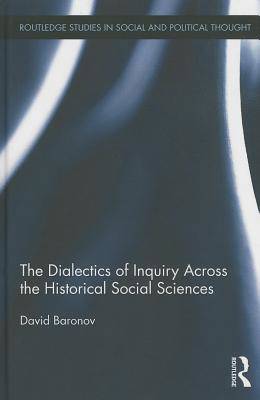
- Afhalen na 1 uur in een winkel met voorraad
- Gratis thuislevering in België vanaf € 30
- Ruim aanbod met 7 miljoen producten
- Afhalen na 1 uur in een winkel met voorraad
- Gratis thuislevering in België vanaf € 30
- Ruim aanbod met 7 miljoen producten
The Dialectics of Inquiry Across the Historical Social Sciences
David BaronovOmschrijving
This book turns conventional global-historical analysis on its head, demonstrating, first, that local events cannot be derived -- logically or historically -- from large-scale, global-historical structures and processes and, second, that it is these structures and processes that, in fact, emerge from our analysis of local events. This is made evident via an analysis of three disparate events: the New York City Draft Riots, AIDS in Mozambique, and a 2007 flood in central Uruguay. In each case, Baronov chronicles how expressions of human agency at the level of those caught up in each event give form and substance to various abstract global-historical concepts -- such as slavery in the Americas, global capitalist production, and colonial/postcolonial Africa. Underlying this repositioning of the local and the ephemeral is an immanent, phenomenological analysis that illustrates how mere transient events are the progenitors of otherwise abstract, global-historical concepts. Traversing the intersections of human agency and structural determinism, Baronov deftly retains the nuance and serendipity of everyday life, while deploying this nuance and serendipity to further embellish our understanding of those enduring global-historical structures and processes that shape large-scale, long-term, historical accounts of social and cultural change across the historical social sciences.
Specificaties
Betrokkenen
- Auteur(s):
- Uitgeverij:
Inhoud
- Aantal bladzijden:
- 308
- Taal:
- Engels
- Reeks:
- Reeksnummer:
- nr. 85
Eigenschappen
- Productcode (EAN):
- 9780415717632
- Verschijningsdatum:
- 8/10/2013
- Uitvoering:
- Hardcover
- Formaat:
- Genaaid
- Afmetingen:
- 152 mm x 231 mm
- Gewicht:
- 566 g

Alleen bij Standaard Boekhandel
Beoordelingen
We publiceren alleen reviews die voldoen aan de voorwaarden voor reviews. Bekijk onze voorwaarden voor reviews.











